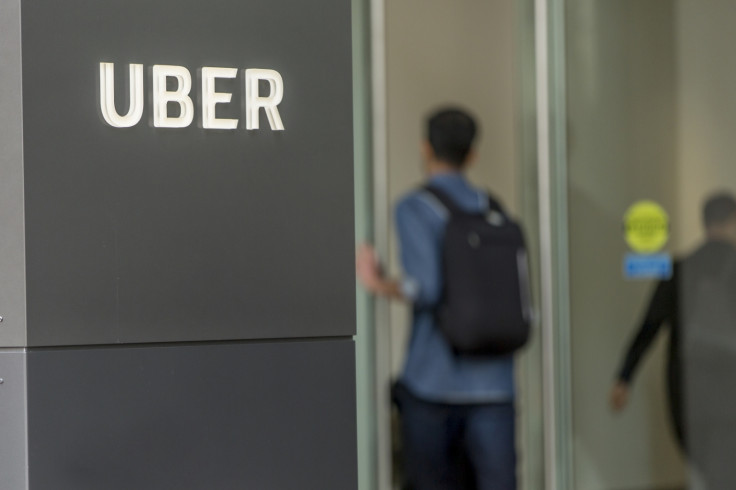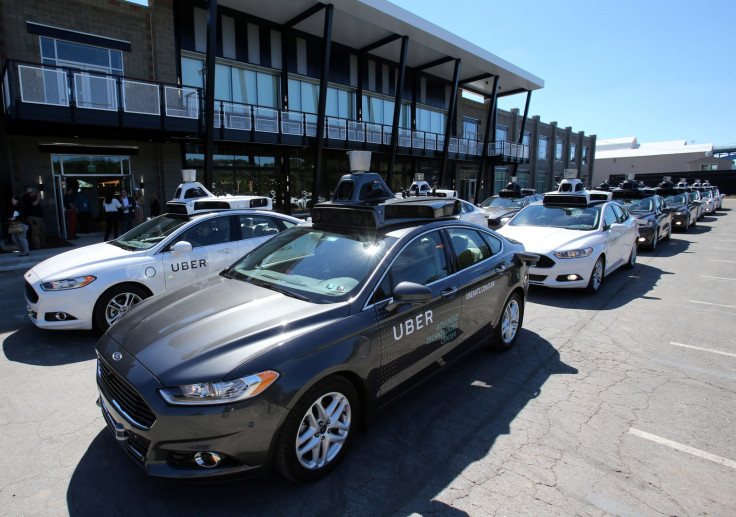Union fires first salvo on Uber and the gig economy
The GMB union says it will review the contracts at other firms that offer "bogus self employment".
At a single stroke the GMB union has declared war on Uber and the gig economy.
The union backed a case brought by two Uber drivers successfully arguing for them to receive workers benefits such as holiday pay and the national living wage.
This was upheld in a landmark ruling by the Central London Employment Tribunal who said that Uber drivers are not self-employed, but are workers who are entitled basic benefits such as sick pay.
The GMB sent a shot across the bows of key gig economy firms such as Deliveroo that it does not intend to let this issue rest.
Maria Ludkin, GMB legal director, said: "GMB puts employers on notice that we are reviewing similar contracts masquerading as bogus self employment, particularly prevalent in the so called 'gig economy'. This is old fashioned exploitation under newfangled jargon, but the law will force you to pay GMB members what they are rightfully due."
But Uber has argued that one of the main reasons its 40,000 drivers in the UK are attracted to the firm is that they can "become their own boss", and work when and where they want.
Jo Bertram, regional general manager of Uber in the UK, added: "While the decision of this preliminary hearing only affects two people we will be appealing it."
If these extra costs are forced through they could deal a body blow to the firm's hopes of growth in the UK.

Sean Nesbitt, partner in the employment team at law firm Taylor Wessing, estimated that holiday pay, auto-enrolment pension contributions and other charges could add more than £17m a year to Uber's costs. Nesbit added this is around 10 times more than Uber's after tax profit of £1.415m last year.
Dark side of the gig economy
TUC General Secretary Frances O'Grady said: "This case has exposed the dark side of so-called 'flexible' labour. For many workers the gig economy is a rigged economy, where bosses can get out of paying the minimum wage and providing basics like paid holidays and rest breaks."
A key part of Uber's success, since it was launched in 2010 by co-founder and chief executive Travis Kalanick, has been the low costs it has maintained compared to traditional taxi firms.
Uber argues instead that it is a technology firm that connects taxi drivers with customers using its app.
Steve McNamara, general secretary of the Licensed Taxi Drivers Association, said: "We have all heard the stories about Uber drivers struggling to make ends meet, earning well below minimum wage and working excessive hours, which is not only damaging for drivers but has implications for the safety of passengers and other road users."
McNamara added it was time for Uber to start: "abiding by regulation and paying its fair share of tax."
But the right-of-centre think tank Institute of Economic Affairs said the ruling does not reflect the changing nature of work for many people.
Mark Littlewood, director general at the IEA said: "Uber is no different from the dozens of other sharing platforms, such as Airbnb and eBay. It would be laughable to suppose that those who run their business through eBay should expect sick pay and holiday leave from the tech firm."
"The nature of the labour market is changing, with more people self-employed than ever before. Sharing platforms such as Uber have had a huge part to play in this change that allows people greater flexibility in their work. They should be applauded for enabling these positive changes to peoples' working lives, not restricted by senseless rulings such as this."
Economy that works for all
This ruling about employment rights is widely regarded as the first real test of the UK's gig economy, which has come under fire for allegedly exploiting workers.
In November, another employment tribunal will hear a similar case that has been taken against courier firm City Sprint by the Independent Workers Union of Great Britain.
These cases echo concerns about the growth of insecure work, an issue that led the government to announce a review of employment practices earlier this month – which will look at job security, pay and workers' rights.

A Department for Business, Energy & Industrial Strategy said: "The government is committed to building an economy that works for all.
"We are keen to ensure our employment rules keep up to date to reflect new ways of working, and that's why the government has asked Matthew Taylor to conduct an independent review into modern working practices."
Matthew Taylor is a former policy adviser to former Prime Minister Tony Blair.
Uber, which operates in around 500 cities worldwide, has clashed with cities in Spain, France and Germany as angry heavily-regulated taxi drivers say they have been subjected to unfair competition by the firm.
The business is expected to launch an initial public offering in around 18 months at a valuation of around $63bn. But Uber, whose investors include Goldman Sachs and Microsoft, may have to wait for a much clearer picture of its tax obligations in key countries before it attempts to come to the public markets.
© Copyright IBTimes 2025. All rights reserved.






















